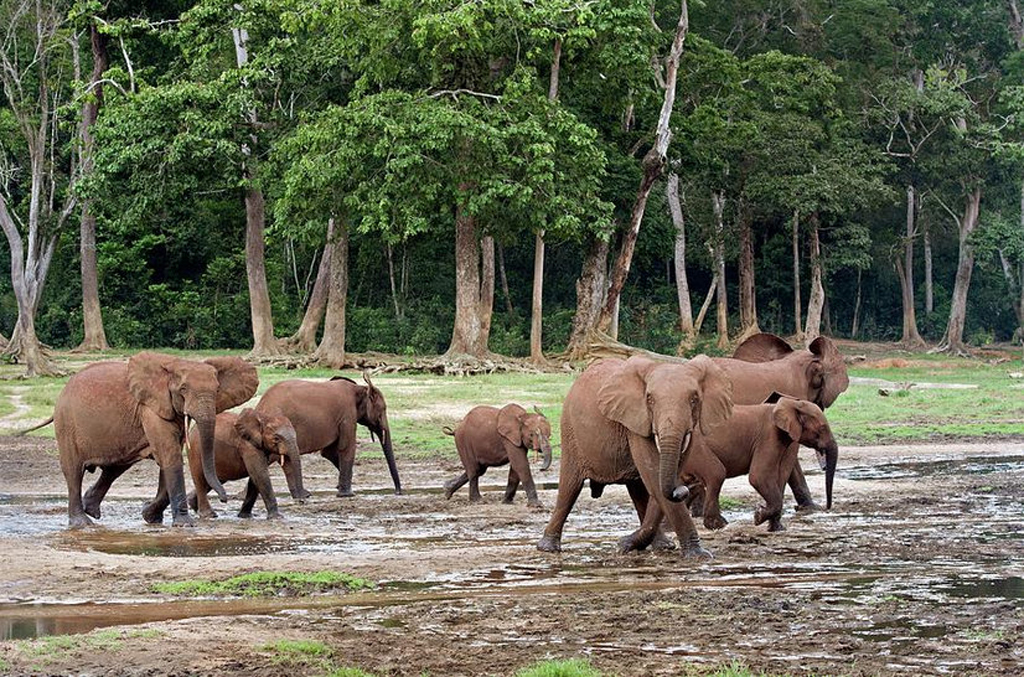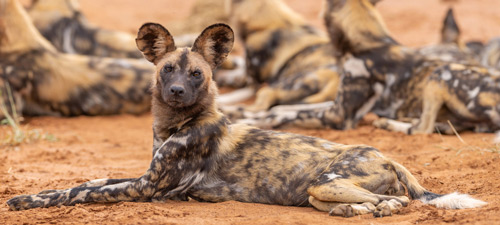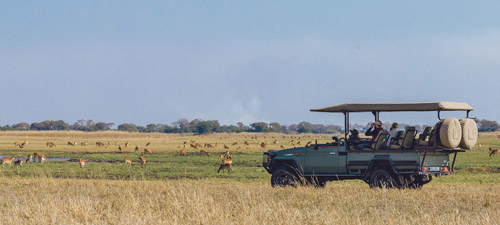
DECODING SCIENCE by AG Editorial
The forest elephant population in one of Central Africa‘s largest and most important protected areas has declined by 80% in 10 years because of poaching, with an estimated 25,000 elephants poached between 2004 and 2014, says a new Duke University-led study.
Gabon’s Minkébé National Park was explicitly declared to protect elephants and hosted the highest density of forest elephants in Central Africa at the turn of the century. It was thought that the large size (7,570 km2) and remoteness of the national park would keep elephants safe from poaching.
“Our research suggests that more than 25,000 elephants in Minkébé may have been killed for their ivory between 2004 and 2014,” said John Poulsen, assistant professor of tropical ecology at Duke‘s Nicholas School of the Environment. The elephant population was estimated at 35,404 in 2004 compared to 6,542 in 2014.
“With nearly half of Central Africa‘s estimated 100,000 forest elephants thought to live in Gabon, the loss of 25,000 elephants from this key sanctuary is a considerable setback for the preservation of the species,” he said.

The researchers estimated the extent of the population losses by comparing data from two large-scale surveys of elephant dung in Minkébé National Park from 2004 and 2014, using two different analytic methods to account for periods of heavy rainfall that might speed the dung’s decay and skew the surveys’ accuracy.
The report explained that portions of the national park with major roads nearby (6.1 km away) were “emptied” of elephants. In contrast, populations of elephants in areas further away from major roads (58 km) were “somewhat reduced”. The proximity of major roads makes it relatively easy for poachers to access the park and transport their illegal haul across the Gabon/Cameroon border to Cameroon’s largest city, Douala, a major hub for the international ivory trade.
Gabon was one of several African countries which burned its stockpile of ivory, in a public display of rejection of elephant poaching and opposition to countries which wish to trade internationally in their ivory stocks.
Full report: John R. Poulsen, Sally E. Koerner, Sarah Moore, Vincent P. Medjibe, Stephen Blake, Connie J. Clark, Mark Ella Akou, Michael Fay, Amelia Meier, Joseph Okouyi, Cooper Rosin, and Lee J. T. White (2017). Poaching empties critical Central African wilderness of forest elephants. Current Biology. https://doi.org/10.1093/jel/eqz032
To comment on this story: Login (or sign up) to our app here - it's a troll-free safe place 🙂.![]()








